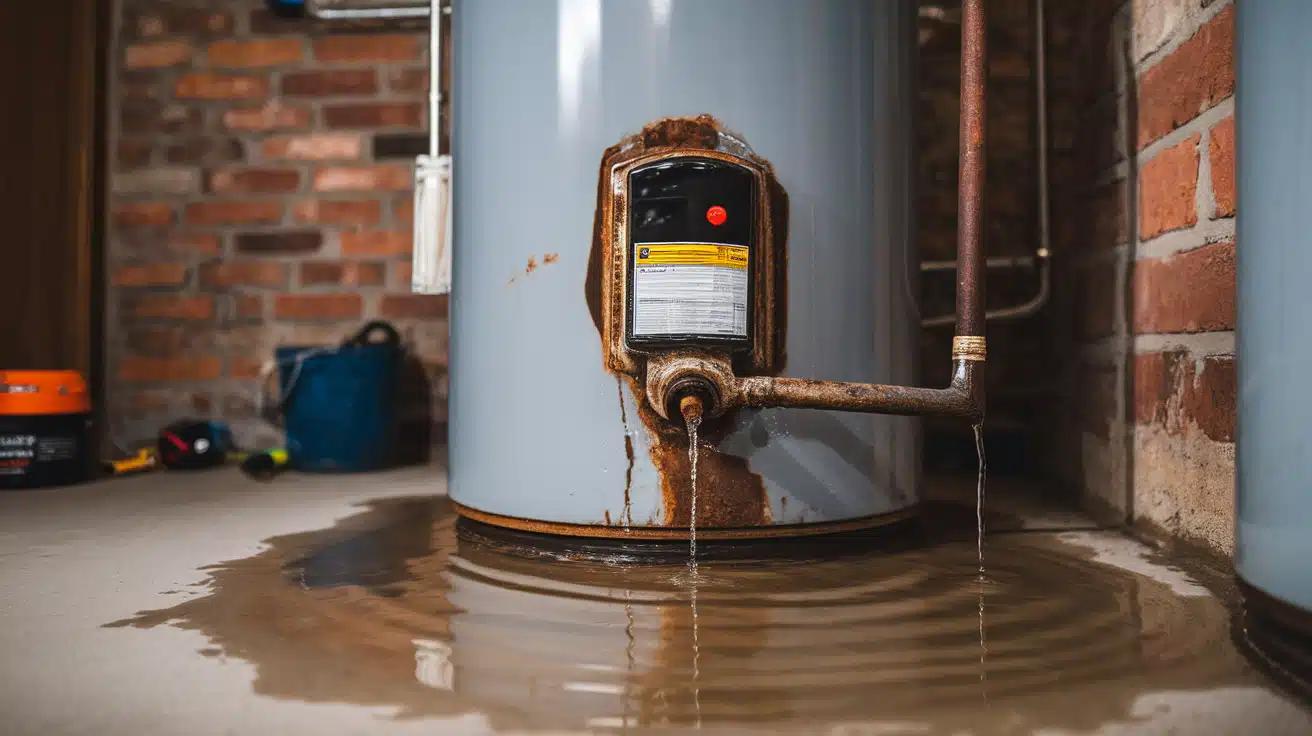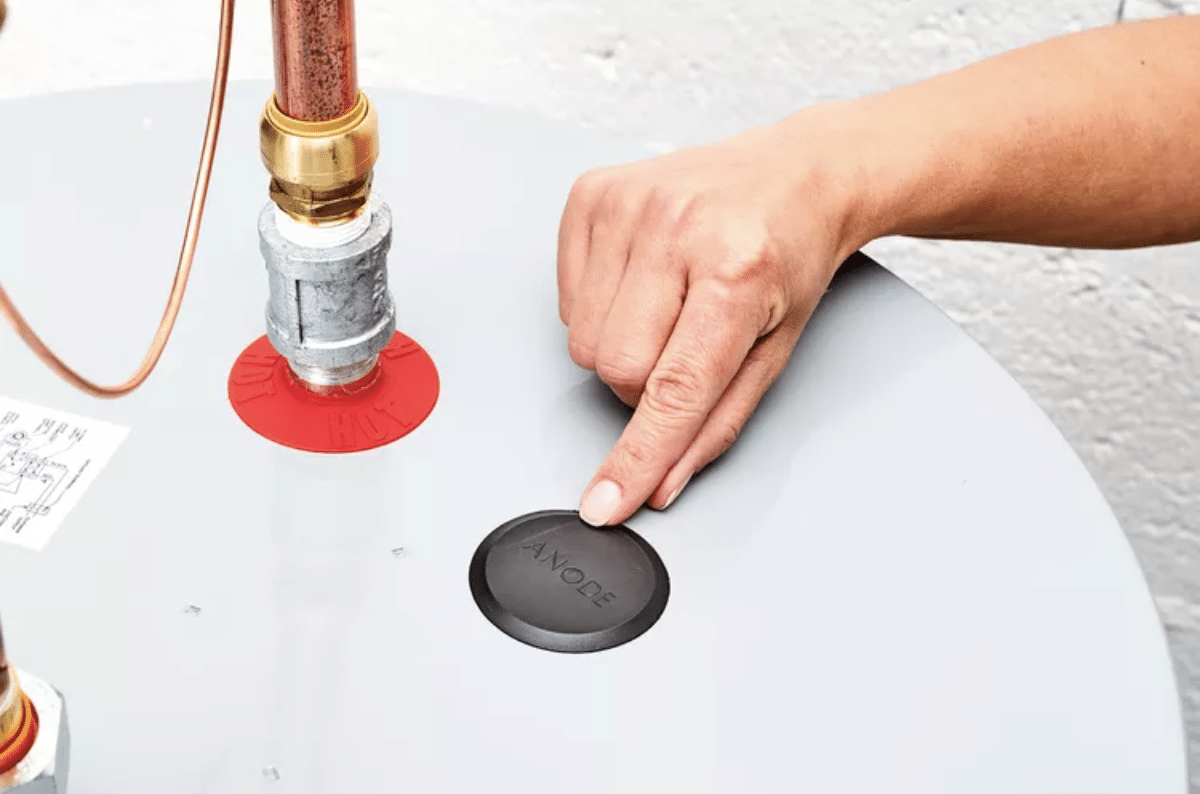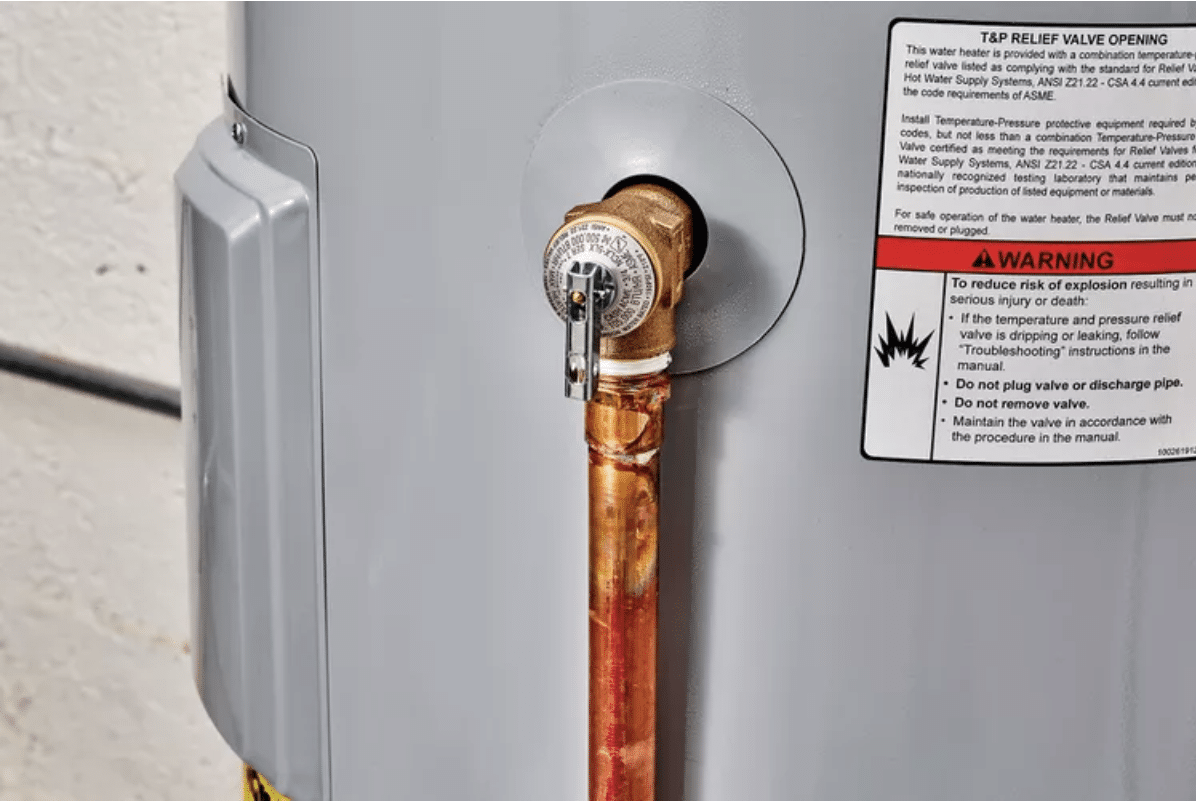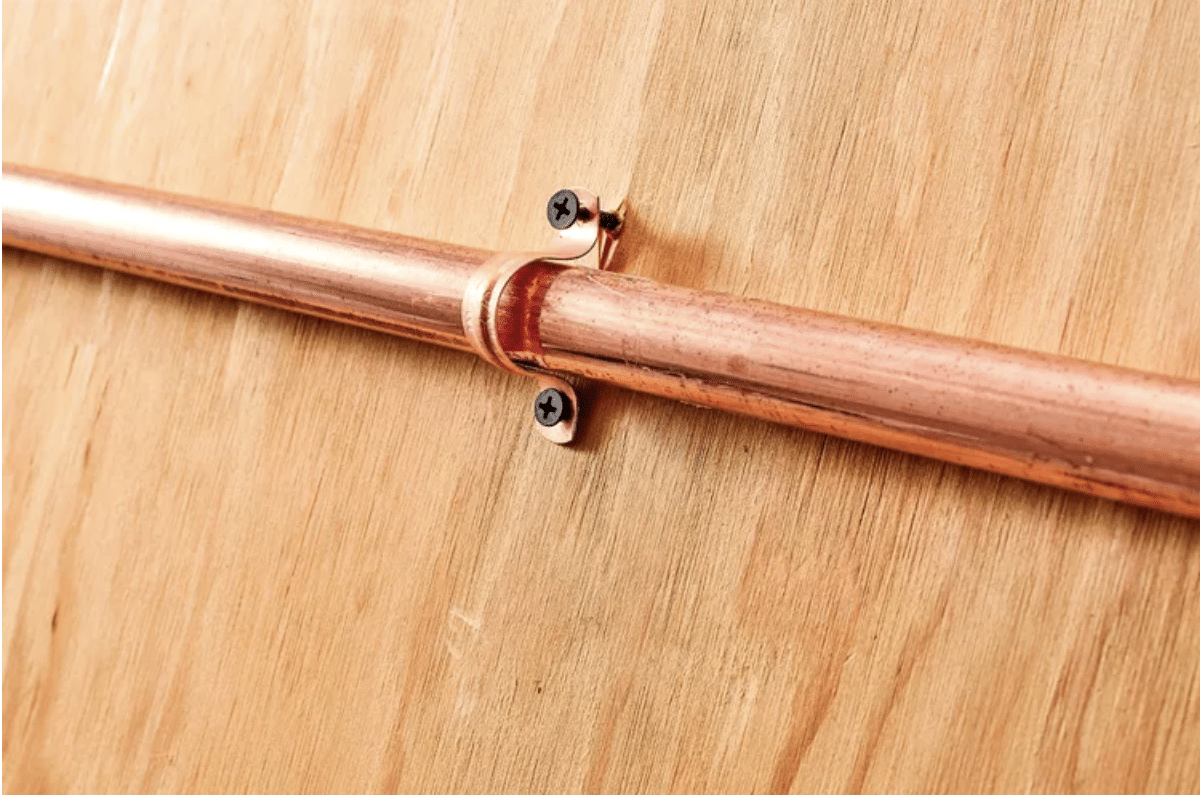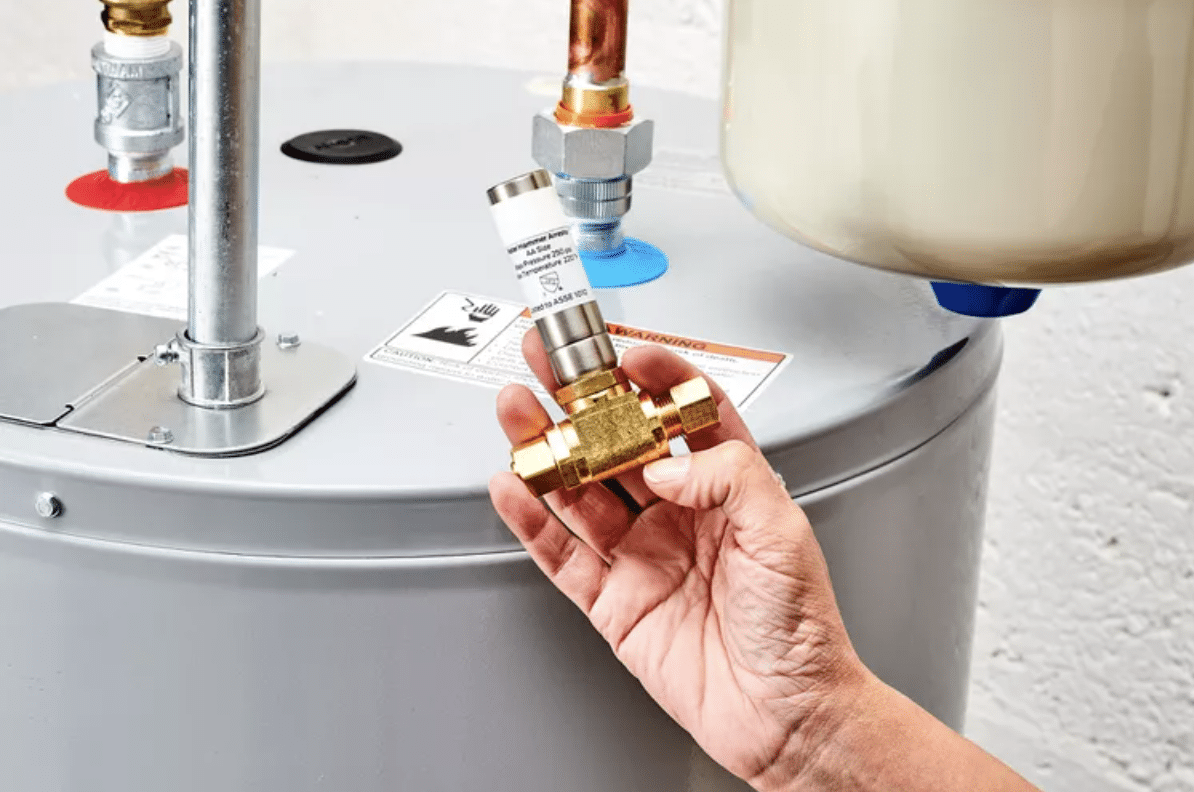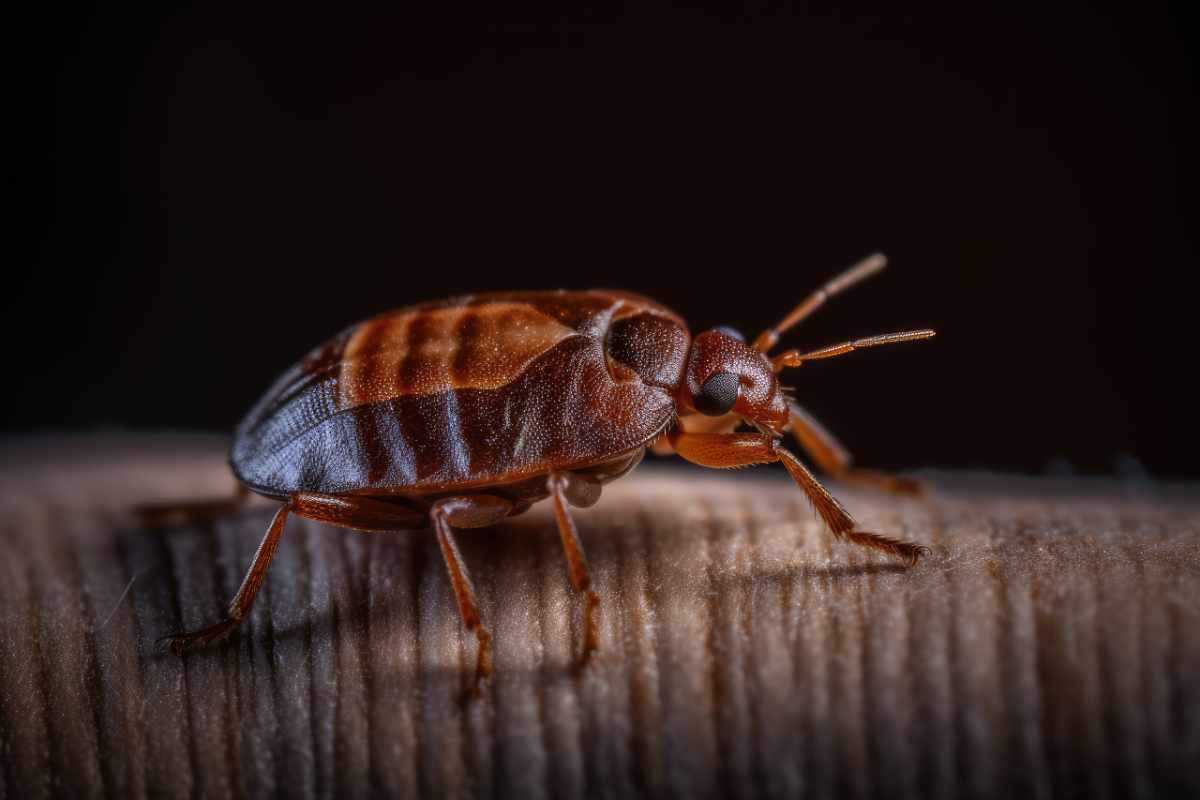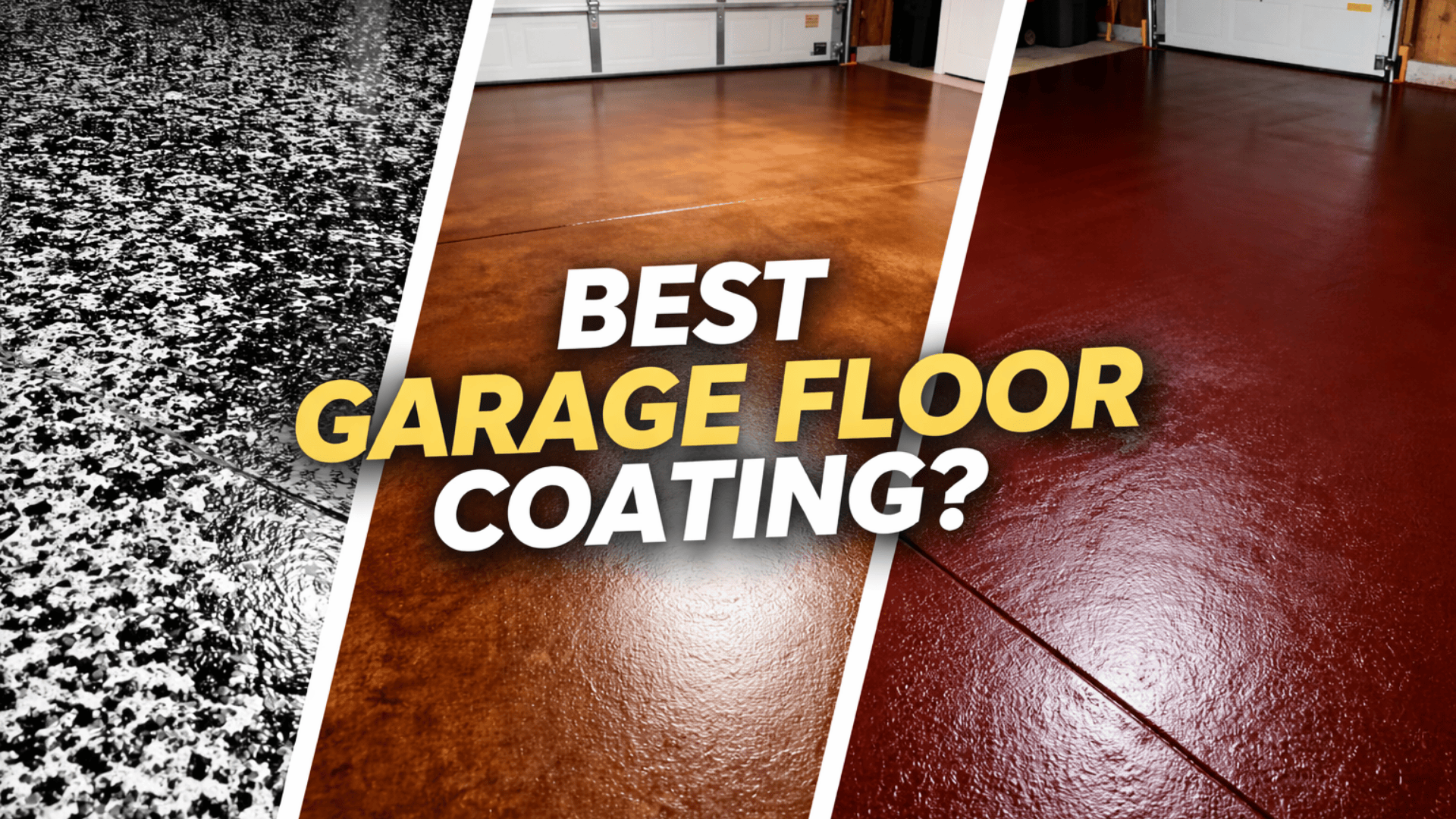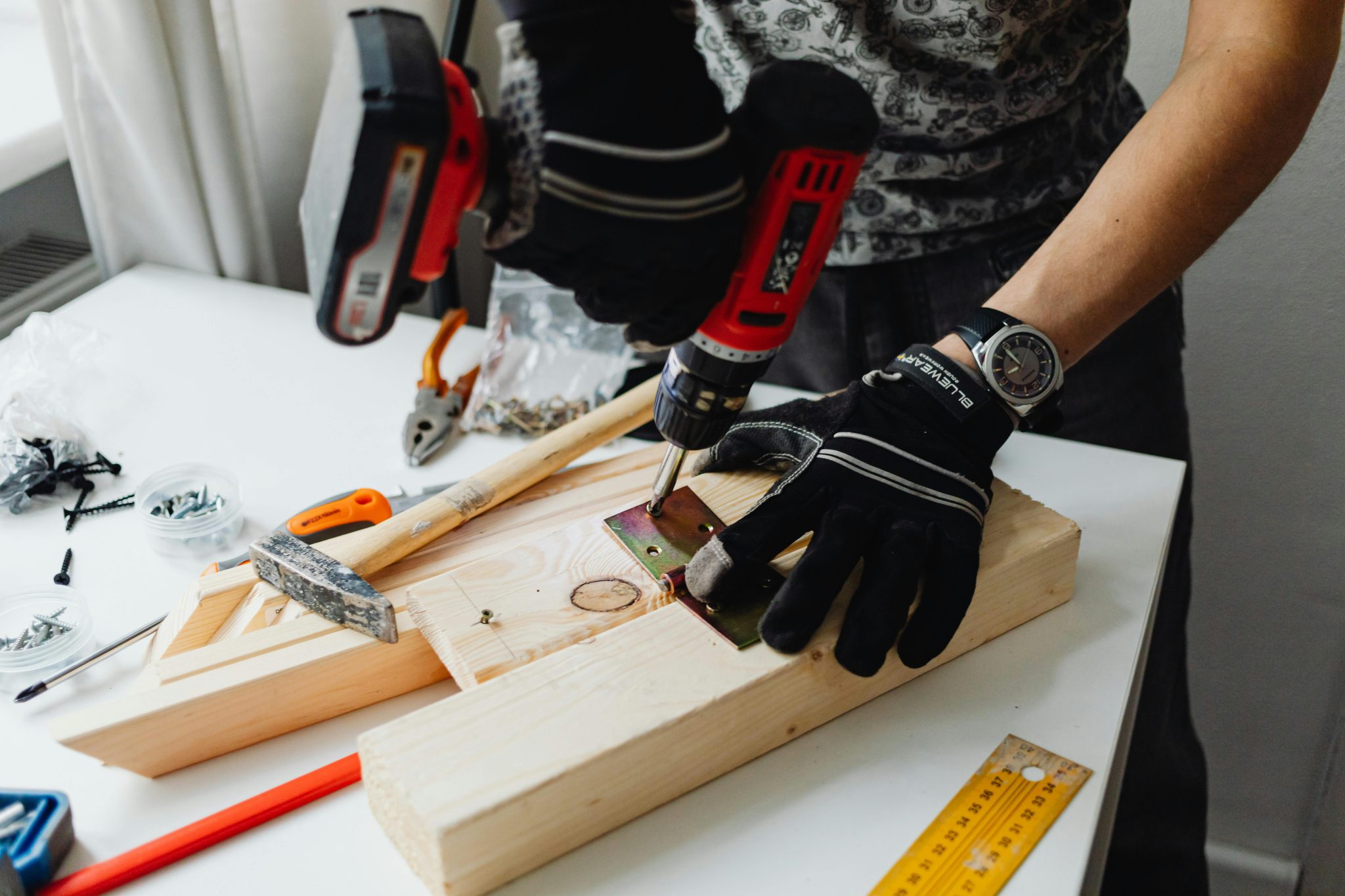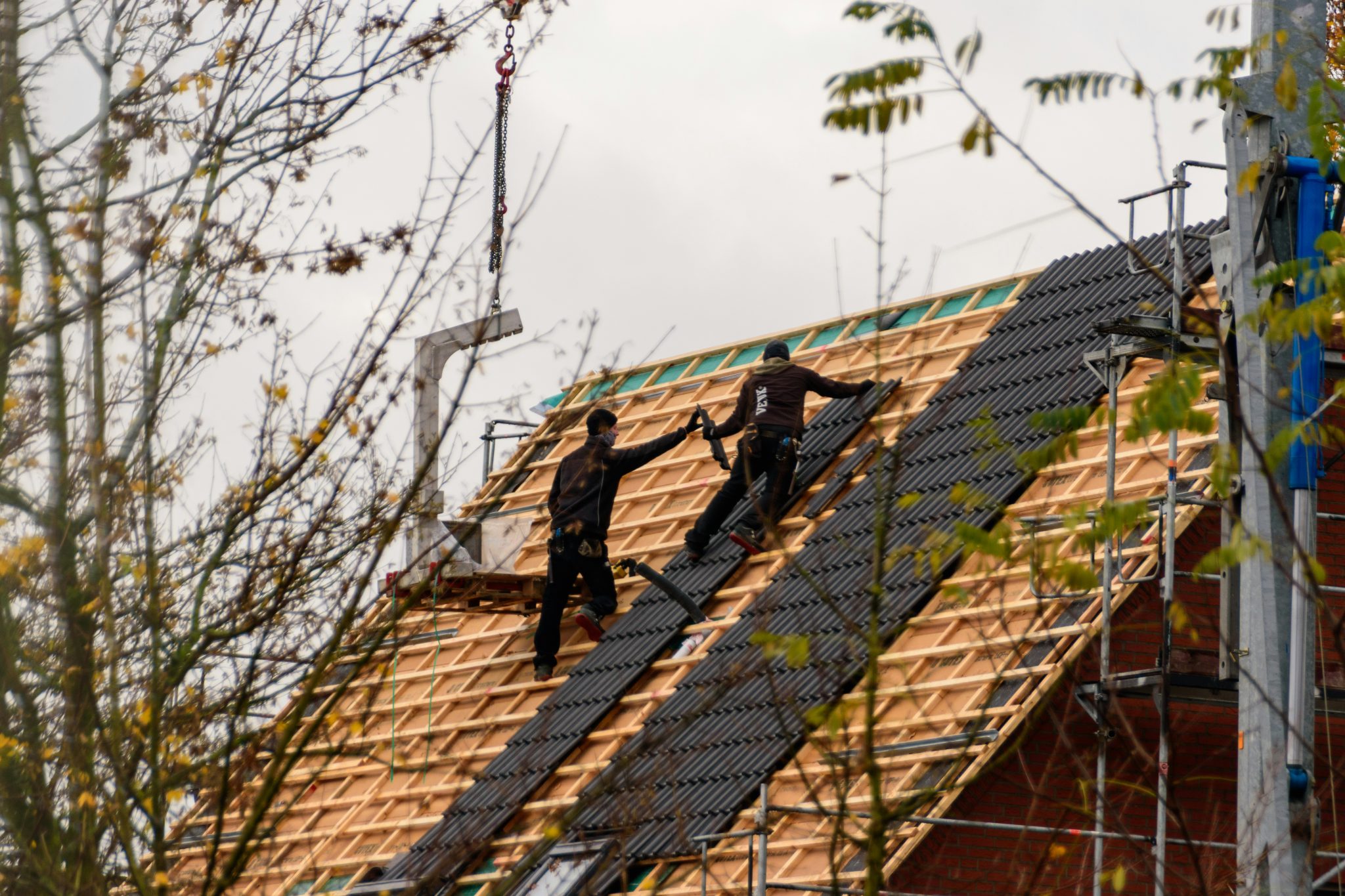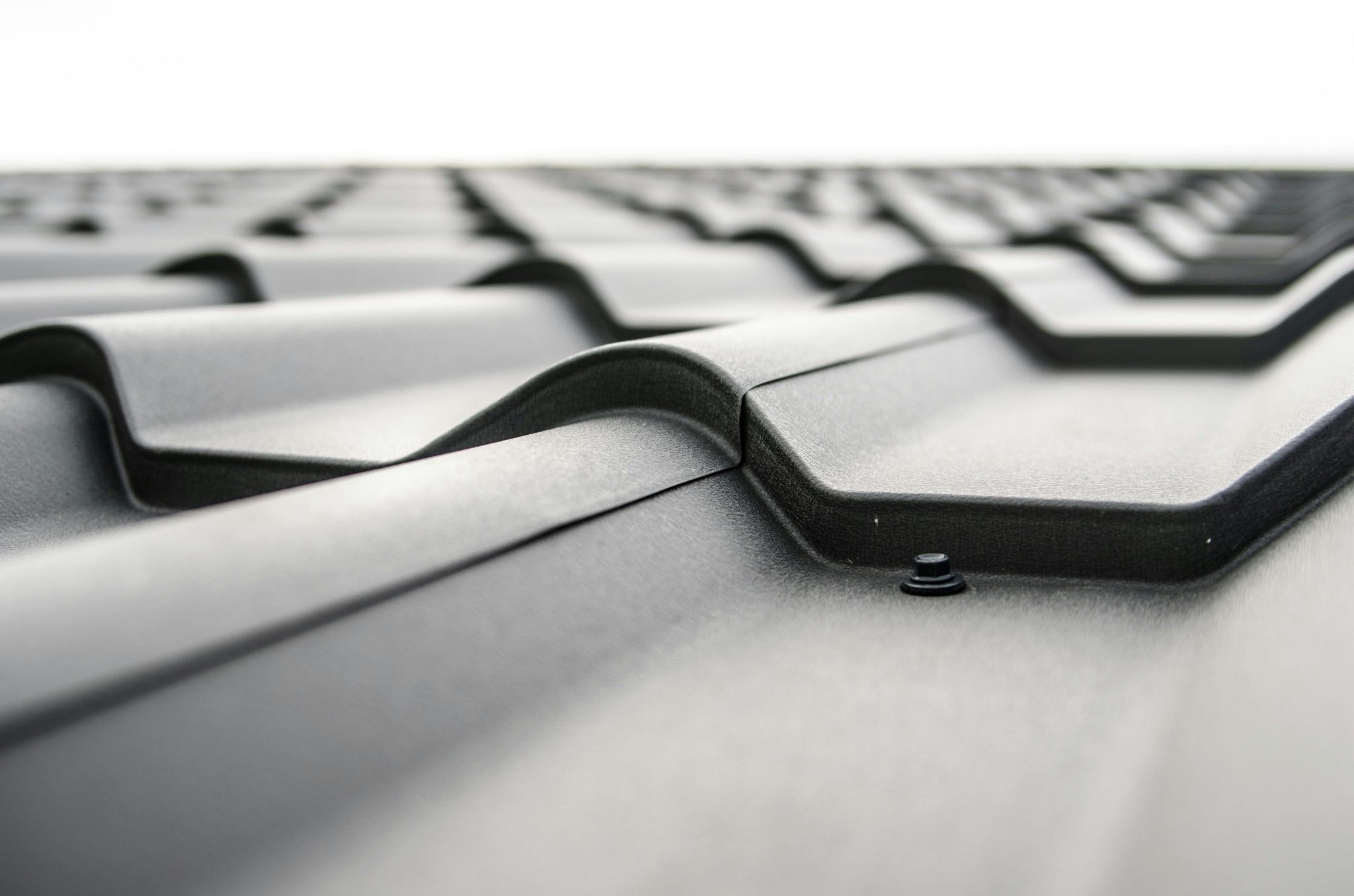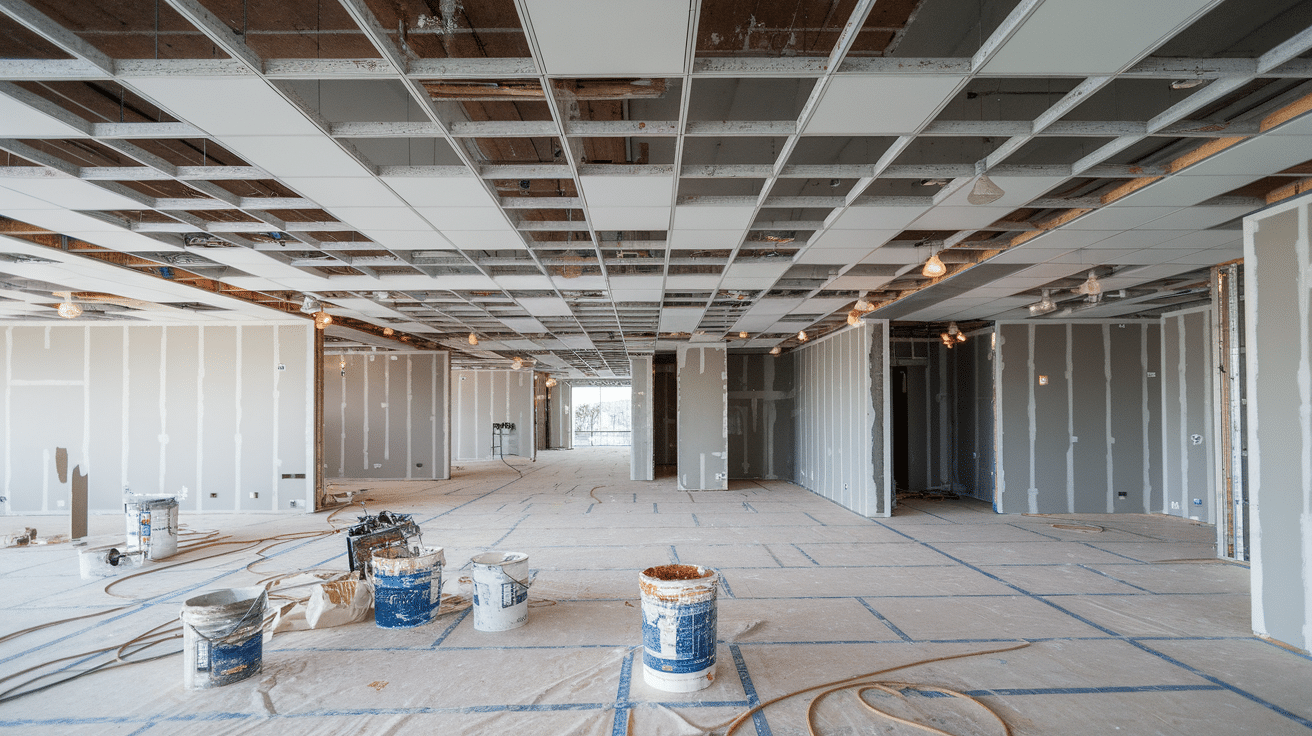How Can I Stop My Water Heater from Making Noise?
A noisy water heater can be quite disruptive, especially when it’s a new installation that you expect to work flawlessly.
Many homeowners face this puzzling issue, wondering why their recently installed water heater is making knocking or other strange noises.
It’s a common problem that can arise from various causes, but the good news is that most of these issues can be resolved.
In this guide, we’ll explore the reasons behind those bothersome sounds coming from your new water heater.
We’ll provide practical solutions to help you quiet your system and ensure it runs smoothly.
From understanding the different types of noises to knowing when to call a professional, we’ve got you covered with actionable advice to restore peace in your home.
Why is Your New Water Heater Making Noises?
Even a brand-new water heater can produce unexpected sounds, leaving homeowners puzzled.
Let’s examine the main reasons behind these noises:
- Sediment Buildup: The most frequent cause of knocking noises in water heaters is sediment gathering at the tank’s bottom. This happens when minerals and debris in the water settle over time, particularly in areas with hard water.
- Water Hammer: Another source of knocking sounds is the water hammer. This occurs when water flow suddenly stops or changes direction in your pipes. The rapid pressure change results in a banging noise within the plumbing system.
- Loose Components or Valves: Loose parts or partially closed valves in your water heater can contribute to knocking or screeching noises. These issues can cause vibrations and unusual sounds when water flows through the system.
Understanding these common causes can help you identify and address the issue, ensuring your new water heater operates quietly and efficiently.
How to Diagnose and Fix Different Water Heater Noises
1. Popping or Rumbling
These noises usually stem from sediment buildup in the tank. As water heats, steam bubbles form under this layer and burst through, causing the sounds.
This issue is particularly common in hardwater areas where mineral deposits accumulate faster.
Solutions
- Flush the tank regularly to remove accumulated sediment. This is often the most effective way to restore quiet operation.
- In hard water areas, consider using descaling agents to break down mineral deposits and flush out sediment more easily.
2. Screeching or Whistling
High-pitched noises often occur due to restricted water flow through partially closed or obstructed valves.
These sounds can also indicate a problem with the pressure relief valve, which may struggle to release excess pressure.
Solutions
- Check all valves around the water heater to ensure they’re fully open, allowing smooth water flow.
- Inspect water lines for any blockages that may restrict flow. If obstructions are difficult to remove, consult a professional.
3. Sizzling or Hissing
In electric water heaters, these sounds often result from heating elements being covered by sediment.
For gas heaters, it could indicate condensation issues. These noises may also suggest a small leak in the tank or connections.
Solutions
- Flush the tank regularly to prevent sediment buildup, which can extend the lifespan of heating elements.
- For gas heaters, inspect for leaks or condensation inside the tank. If found, seek professional help immediately.
4. Banging or Hammering
These sounds typically result from sudden changes in water flow, known as water hammer.
The intensity of these noises can increase if pipes are loose or not properly secured.
Solutions
- Install a water hammer arrestor to absorb shock from sudden pressure changes.
- Consider adjusting overall water pressure in your system.
- Adding pipe insulation can help reduce noise by cushioning impact.
Preventive Measures to Stop Noises Before They Start
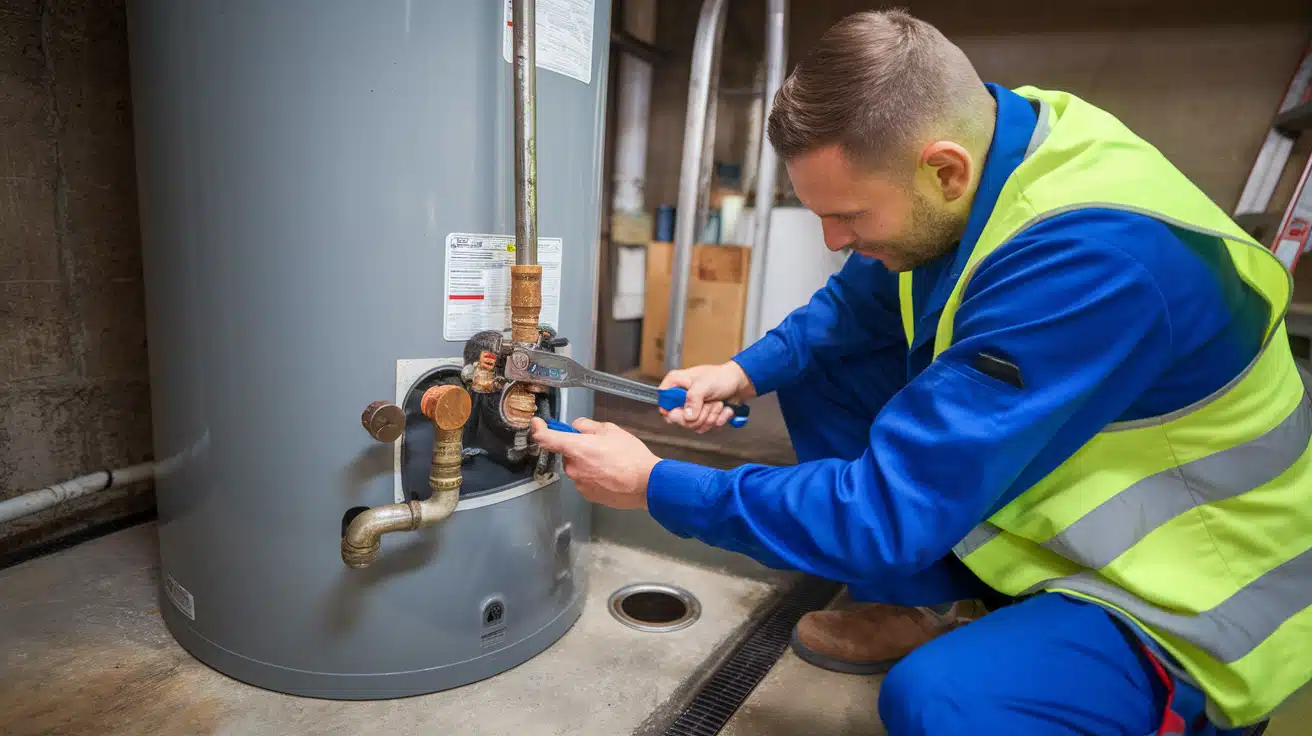
1. Regular Flushing and Draining
Annual flushing and draining of the water heater is essential to prevent sediment buildup, a common cause of noise and inefficiency.
To flush the water heater safely:
- Turn off the power or gas supply.
- Connect a garden hose to the drain valve at the tank’s bottom.
- Open a nearby hot water tap to allow air into the tank.
- Open the drain valve and let water flow out until it runs clear.
- Close the drain valve, disconnect the hose, and refill the tank before restoring power.
- Check for any leaks around the drain valve.
Performing this task annually reduces the risk of sediment-related issues, leading to a quieter and more efficient water heater.
2. Install a Water Softener
A water softener effectively minimizes mineral deposit buildup in your water heater, especially in hard water areas.
Hard water, rich in calcium and magnesium, contributes to limescale and sediment accumulation, leading to noise and reduced efficiency.
By filtering out these minerals before they reach your water heater, a softener not only reduces sediment buildup but also maintains the smooth operation of your entire plumbing system.
3. Tighten Loose Parts and Check Valves
Regularly inspecting and tightening loose components, including valves and heating elements, prevents noise and ensures efficient water heater operation.
To inspect and tighten parts:
- Turn off the power to the water heater before inspecting any components.
- Check the heating elements and use a wrench to fasten them securely.
- Inspect all valves and pipes to ensure they are fully open and securely connected.
- Tighten any loose screws or pipe straps to prevent rattling and ensure smooth water flow.
When to Call a Professional
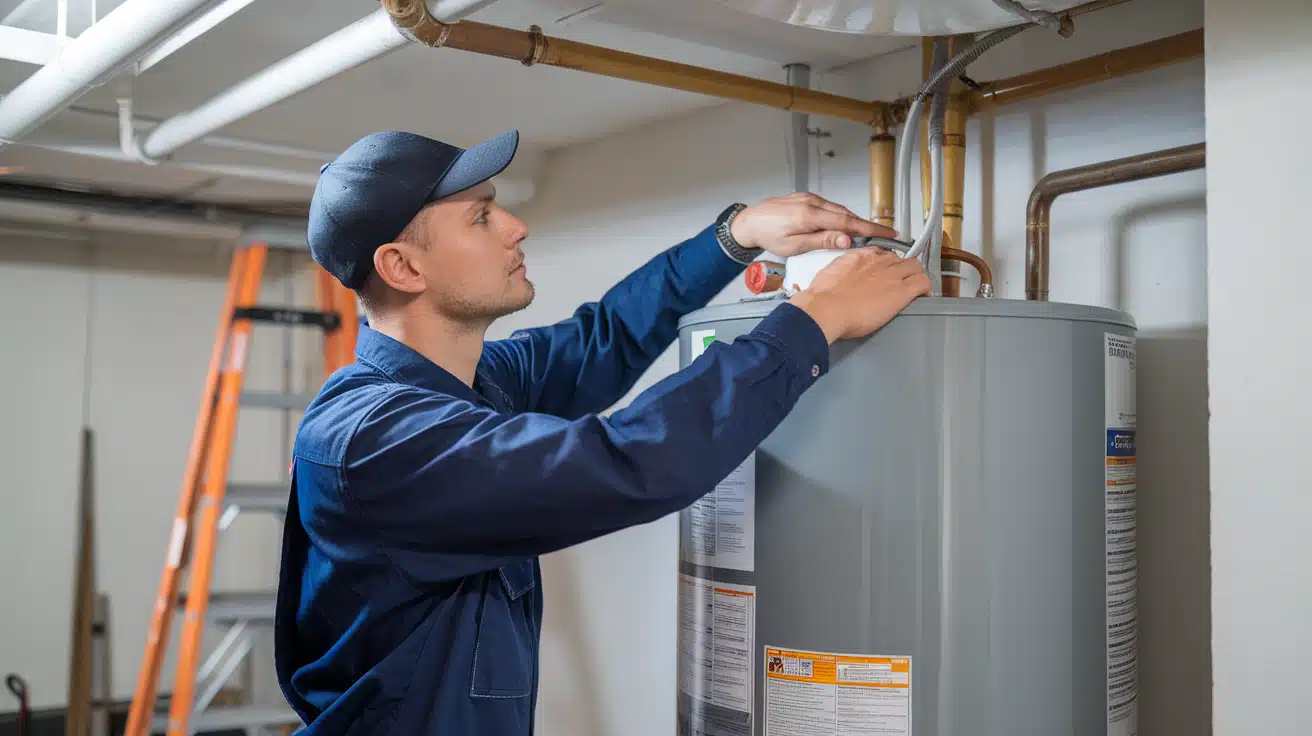
- Persistent or Loud Noises: Consult a professional if your water heater makes ongoing loud noises despite DIY fixes. These sounds may indicate internal issues needing expert assessment. Quick, professional attention prevents further damage and ensures safe operation.
- Leakage or Rust: Visible leaks or rust require professional help. Even small leaks can lead to water damage or mold, and rust might signal internal problems. Regular expert inspections catch these issues early, extending the heater’s life.
- Major Component Failure: Screaming, booming, or loud pops suggest serious internal problems needing immediate professional attention. These could stem from pressure issues or severe sediment buildup. Prompt action prevents costly repairs and maintains your plumbing system’s safety.
Conclusion
Your water heater plays a crucial role in your daily comfort, so promptly addressing any unusual noises is important.
By understanding the common causes of these sounds and taking preventive measures, you can maintain a quiet, efficient system.
Remember, regular maintenance like flushing the tank and checking for loose components can go a long way in preventing issues.
While many problems can be solved with simple DIY solutions, don’t hesitate to call a professional if you encounter persistent noises, leaks, or signs of major component failure.
Their expertise can save you from costly repairs down the line.
By staying attentive to your water heater’s needs, you’ll ensure a steady supply of hot water and peace of mind.
Keep listening, stay proactive, and enjoy the quiet comfort of a well-maintained water heater.
Frequently Asked Questions
How to Soundproof a Water Heater?
To soundproof a water heater, wrap it with a thick, soft material. This helps absorb vibrations and reduce airborne noise. The heavier the wrapping material, the more effective it will be at muffling sounds from the heater.
How Do I Stop My Water Heater from Being So Loud?
If your water heater is humming, it’s likely due to a loose heating element. Tightening this element should stop the noise. For other sounds, identifying the specific cause is key to finding the right solution.
Should I Flush My Water Heater Every Year?
Yes, it would be best if you flushed your water heater annually. This removes sediment buildup, improves efficiency, and extends the lifespan of your water heater.

